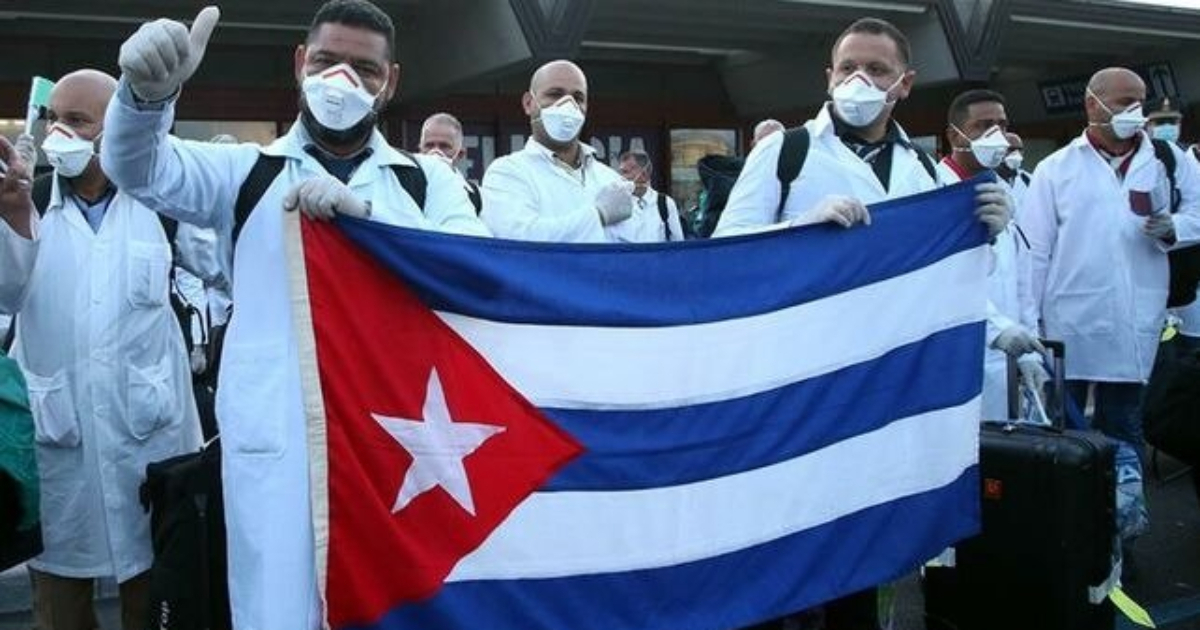On Monday, Bahamian Prime Minister Philip Davis will lead a delegation to meet with senior U.S. officials to discuss two critical issues: the employment of Cuban doctors in the Bahamas and the recent visa restrictions imposed by Washington on officials connected to Cuban medical missions. According to Bahamian Press Secretary Keishla Adderley, this meeting follows concerns raised by U.S. Secretary of State Marco Rubio regarding the compensation of these Cuban doctors, whom he accuses of being victims of "human trafficking," as reported by the agency EFE.
Rubio has been a strong advocate for the visa restrictions on officials linked to these medical missions, which Washington views as a form of labor exploitation. An Archivo Cuba project report, based on unofficially leaked contracts, reveals that the Cuban government retains between 83.9% and 91.6% of the payments the Bahamas makes for each Cuban healthcare professional. These workers receive only a modest monthly stipend while the majority of the payment goes to the Cuban state entity, Comercializadora de Servicios Médicos Cubanos (CSMC).
For instance, the contracts indicate that the Bahamas pays up to $12,000 per month for each "medical specialist advisor," of which only $1,200 reaches the worker. Health technicians or computer engineers receive a stipend of just $990, despite the Bahamian government paying $5,000 monthly for their services. Additional benefits such as housing, transportation, health insurance, English courses, and administrative expenses increase the overall cost of each worker beyond the local average salary. Currently, over 100 Cubans are employed in Bahamian hospitals and health institutions like Princess Margaret and Rand Memorial.
The report also highlights that many professionals face restrictive clauses preventing them from accepting independent contracts, demanding confidentiality, and even subjecting them to disciplinary actions from Cuba. Additionally, some work without proper migration permits and are compelled to participate in political demonstrations organized by the Cuban embassy.
Marco Rubio, during a recent tour of several Caribbean countries to address the situation of Cuban medical missions, described these missions as an "atrocious practice" and called for a case-by-case review of existing agreements, citing potential human and labor rights violations. Washington has incorporated this scheme into its human trafficking evaluations and has imposed visa restrictions on involved officials. The U.S. State Department's annual report estimates that the Cuban regime earns over $4.9 billion annually by exporting medical services, in a system it describes as "coercive and exploitative."
Despite these allegations, in December 2024, Bahamian Health Minister Dr. Michael Darville and Director of the Public Hospitals Authority Dr. Aubynette Rolle publicly affirmed the "positive" nature of the agreement with the Cuban regime, expressing their interest in expanding bilateral health cooperation. Additionally, during the V International Cuba-Health Convention 2025 in April, Dr. Michael Darville met with his Cuban counterpart José Ángel Portal Miranda to discuss actions between the two ministries to follow up on issues of mutual interest.
Understanding U.S. and Bahamian Discussions on Cuban Medical Missions
Why is the U.S. concerned about Cuban doctors working in the Bahamas?
The U.S. is concerned because it views the employment of Cuban doctors as a form of labor exploitation and human trafficking, where Cuban authorities retain the majority of the doctors' earnings.
What are the financial arrangements for Cuban doctors in the Bahamas?
Contracts indicate the Bahamas pays significant sums for Cuban doctors, but most of the funds go to the Cuban government, with doctors receiving only a small stipend.
How has Washington responded to these medical missions?
Washington has imposed visa restrictions on officials involved in the Cuban medical missions and has integrated this issue into its human trafficking assessments.
